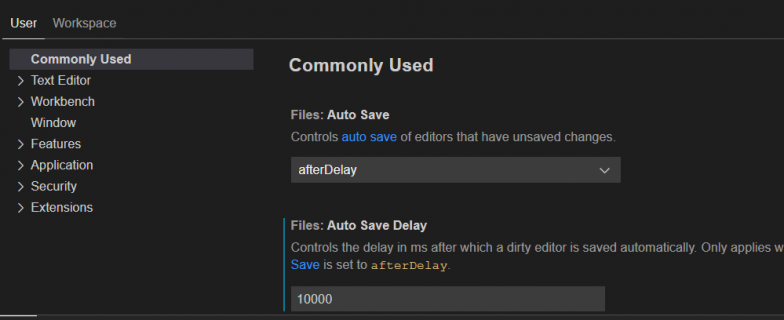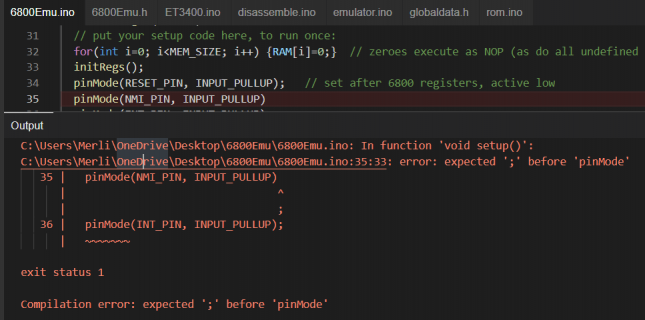mjs513
Senior Member+
I figured out how I got the compile to happen with the missing semi-colon. I have autosave set to 6 seconds in my preferences.
It's probably an omission or a bug, but you can run "compile" or "upload" with a dirty file... you won't get prompted to save, and the disk image is yet unchanged.
That is masking what is the real problem, and that is that the directory for the project outputs gets deleted prior to teensyduino obtaining the .hex file. This seems to happen mostly after there was a failed compilation, and you fix the issue and try a new compilation.
That said, if none of you can reproduce this, the odds of anyone ever looking at it and fixing it are pretty slim.
- Wes, W5ZZO
Sorry couldn't find that setting in advanced - more than likely I did but do not know how to set. Probably someone else will



